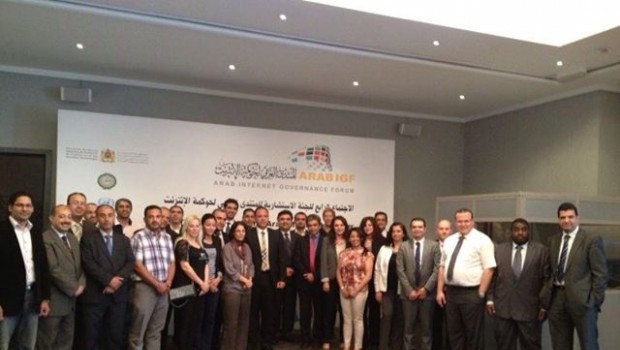In this developed world that is always moving in exciting new directions and in which the Internet has become one of the most important contributors to these spectacular changes, statistics on the number of internet users in the Arab world are unfortunately very sad. According to figures released in 2011, only 23.9 percent of Arabs use the Internet—significantly lower than the 33.2 percent of people who use it around the world.
Of course, statistics cannot paint the whole picture. But we also know that Arabic websites amount to no more than 0.15 percent of all websites, which is miserable and extremely unfortunate, to say the least.
Arabs constitute approximately 5 percent of the world’s population. One does not have to be a genius or hold a PhD from MIT to realize that their Internet presence is thus paltry and unrepresentative.
It is clear that Internet illiteracy is a new developmental challenge facing officials and activists working to provide the Arab world with a more tangible role in the economic, political, social and cultural scene worldwide.
Promoting Internet literacy is a challenge the Arab world in particular must take account of, as well-known studies confirm that more than 60 percent of Arabs are under 25 years old. They are ambitious, and they are the demographic that needs to be targeted if we are going to develop the future.
The Arab Forum for Internet Governance was officially established in January 2012. In theory, it mainly includes governments, official bodies and Internet service providers. It was supported by the United Nations and was inspired and influenced by the Internet Governance Forum that is held annually each January.
The chaos in the Arab online world is a challenge to this forum. Arabic-language Internet sites teem with distrust, takfirism, lies, threats and the promotion of terrorism. People fabricate stories amid the confusion, weakness, reluctance and fear on the part of governments to introduce rules and regulations minimizing the risks of these systematic crimes, which are facilitated by technology.
Arabs seem to use the Internet mainly in order to “let off steam” by chatting and reading news websites, with only a small number of users visiting valuable websites. There is no real e-commerce, e-learning websites, or any other remarkable or influential Arabic-language use of the Internet.
The same applies to the relationship between governments and citizens. True, e-government seems unlikely, as it might open the door to routine and bureaucracy and thus, unfortunately, to corruption.
In Finland, South Korea, India, Malaysia and Singapore, for example, the Internet has become one of the most important means of development. Governments in these countries have been setting up specialist Internet agencies, including government ministries. This marks a real and serious shift in thought, because it is the first step towards treating the Internet as a civilized tool that can be instrumental in developing and strengthening nations. Right now, we are mostly treating the Internet as a game.
The establishment of the Arab Internet forum might open up the opportunity to achieve a quantum leap forward in policies and legislation governing the online world.
